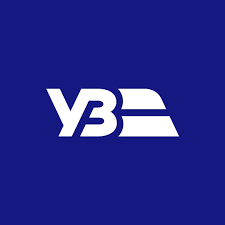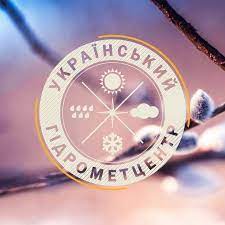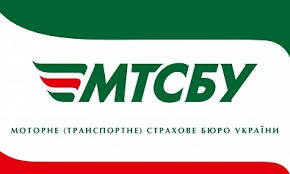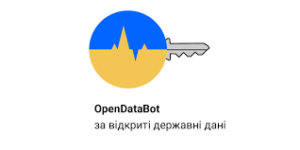
“Ukrzaliznytsia” plans pilot projects of inclusiveness of railway stations, starting with reconstruction of historical buildings in Kiev and Lviv, said the head of the project “Bezbar’ierna zaliznytsia” of JSC “Ukrzaliznytsia” Yarema Dul during the National Tourism Summit on Friday in Lviv.
“It is planned reconstruction of these stations, taking into account that these buildings are monuments of cultural heritage, raising the aprons, arrangement of elevators to them. Now the project documentation is being developed,” he told the agency “Interfax-Ukraine”.
According to the head of the project, these stations were chosen as pilot stations because they are leading in terms of passenger traffic served.
“The task is for the passenger to get into his carriage barrier-free. Today we have, for example, in Kiev, only the first platform is high,” he said.
At the same time, Yarema Dul added that part of the platform should remain low, so that it was possible to accept trains with low entrance.

On Sunday, May 19, in Ukraine in the western, northern, in the afternoon and in the central regions in some places small short-term rains, thunderstorms; in the rest of the territory without precipitation, reports Ukrhydrometcenter. The wind is predominantly southeastern, 7-12 m/s.
The temperature at night is 9-14°, during the day 21-26°.
In Kiev on May 19, there will be light short-term rain and thunderstorms in some places. The wind is predominantly southeast, 7-12 m/s.
The temperature at night is 11-13°, during the day 23-25°.
Number of vacancies as of 31.03.2024 (thousand units) according to the data of the state employment center
Source: Open4Business.com.ua and experts.news

Motor (Transport) Insurance Bureau of Ukraine (MTSBU) from 00:00 hours on May 20 increases tariffs for “Green Card” policies for vehicles traveling abroad by 3.2%.
Amounts of single insurance payments under contracts of international compulsory civil liability insurance of owners of land vehicles are established by the resolution of the Cabinet of Ministers of January 6, 2005 and are defined in euros.
As reported on the website of the ITSBU, for trips within the territory of the member countries of the international system of automobile insurance “Green Card” the cost of the policy from May 20 for 15 days for passenger cars increases to UAH 1,156 thousand (from UAH 1,120 thousand), for buses – to UAH 4,325 thousand (from UAH 4,190 thousand), for trucks – to UAH 2,474 thousand (UAH 2,397 thousand).
The cost of “Green Card” for one month for cars will be UAH 1,841 thousand (against UAH 1,783 thousand), buses – UAH 6,039 thousand (UAH 5,849 thousand), trucks – UAH 3,613 thousand (UAH 3,499 thousand).
Semi-annual and annual policies “Green Card” for cars will now cost respectively 9,636 thousand UAH and 12,849 thousand UAH (previously 9,334 thousand UAH and 12,446 thousand UAH), for trucks – 16,206 thousand UAH and 30,658 thousand UAH, for buses – 21,072 thousand UAH and 39,147 thousand UAH.
The cost of policies for trips to Azerbaijan and Moldova also increases by 3.2%. So for cars for 15 days it will amount to UAH 764 (previously – UAH 740), for one month – UAH 1,124 thousand (UAH 1,089 thousand), for six months – UAH 2,577 thousand (UAH 2,496 thousand), for a year – UAH 3,669 thousand (UAH 3,554 thousand).
The last change of tariffs was March 15, 2024 for cars increase by 11.8% for 15 days and 41.9% for a year, December 22, 2023 upward by 5.6%, September 29 downward by 3.4%, April 21, 2023 upward by 3.15%, December 30, 2022 upward by 3.1%.
As reported, the sum of “Green Card” policies have been realized since 2009 of two types: the whole of Europe and Moldova. Also from January 1, 2016 Ukrainian policies “Green Card” began to operate in the territory of Azerbaijan.
“Green Card” is a system of insurance protection for victims of road traffic accidents regardless of the country of their residence and the country of vehicle registration. It is distributed on the territory of 44 countries of Europe, Asia and Africa.
According to the decision of the General Assembly of the Council of the Bureau of the International Motor Insurance System “Green Card” adopted in Luxembourg in May 2004, Ukraine is a full member of this system since January 1, 2005.

Who are the top 10 banks by profit?
Ukrainian banks earned UAH 40.5 billion in 2024. Despite the increase in taxation, banks managed to earn 19% more than in the same period last year. Only 8 banks out of 63 suffered losses in Q1 2024.
Ukrainian banks earned UAH 40.5 billion in profit after tax in Q1 2024. Despite the fact that the tax rate increased from 18% to 25%, banks managed to earn 19% more than in the same period last year.
There are currently 63 banks operating in Ukraine, including 6 state-owned, 14 with foreign capital, and 43 with private capital. Only 8 banks out of the total number suffered losses this year – UAH 111 million.
The top 10 banks in Ukraine earned UAH 34.22 billion in the first quarter. This is 84% of the total profit of all banks in the country.
During this period, Ukrainian banks paid UAH 10.34 billion in income tax, which is one and a half times more than last year. Privatbank paid almost half of this amount – UAH 4.84 billion.
State-owned banks
Privatbank became the leader of the top, earning UAH 13.86 billion in Q1 2024. This is a third of the profit of all banks. However, this is 14% less than in the same period last year – UAH 16.04 billion.
In total, 6 state-owned banks account for 60% of the total profit of all institutions – UAH 24.28 billion. Currently, only the First Investment Bank, which has recently come under state control, suffered a loss of UAH 7.6 million in Q1.
Foreign banks
Raiffeisen Bank remains the leader among banks with foreign capital, having earned UAH 2.53 billion this year. This is 23% more than in the same period of 2023.
Another bank of this group, Credit Agricole Bank, saw its profits for this period increase 20 times compared to the same period last year. This year, the bank earned UAH 2.02 billion compared to UAH 102.9 million in Q1 of last year. This is the largest increase among all Ukrainian banks.
In total, foreign banks earned UAH 10.2 billion, which is a quarter of the total profit. Only one bank, Pravex Bank, suffered a loss of UAH 76.7 million in Q1.
Private capital
FUIB remains the leader of the group of banks with private capital: UAH 2.13 billion of profit for the quarter. This is 38% more than in the same period last year. Together with Universal Bank (Monobank), they received half of the total profit of the banks in this group.
MTB Bank showed the largest increase in profit among private banks: up to 13 times by the first quarter of 2023.
https://opendatabot.ua/analytics/banks-2024-4




Number of unemployed people registered in public employment service as of 31.03.2024 (in thousands)
Source: Open4Business.com.ua and experts.news